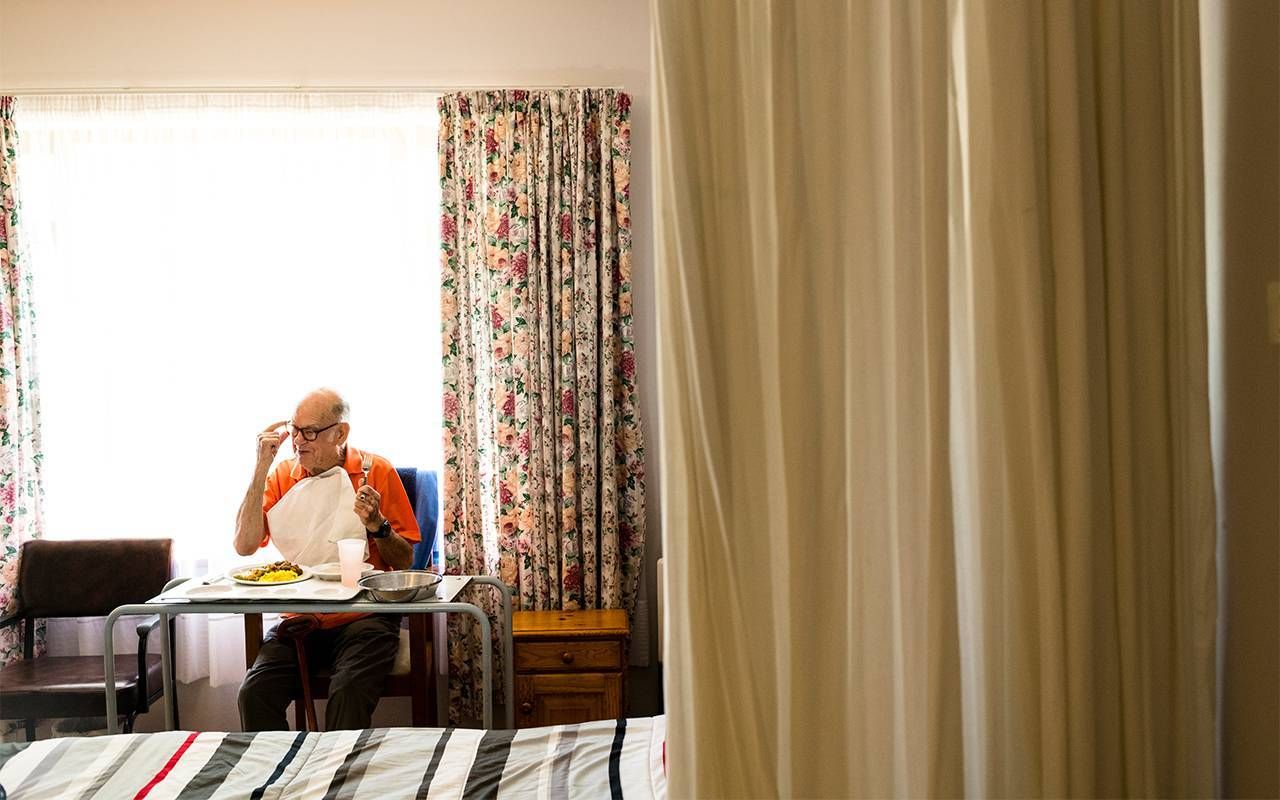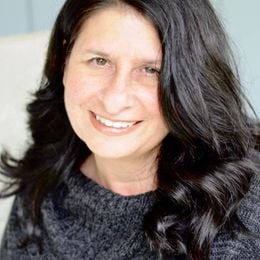Caregiving and Complicated Family Dynamics
When responsibility, belief systems or second chances outweigh a reluctancy to provide support
In 2020, AARP identified the number of caregivers at 53 million Americans; 89% care for a relative or partner, with women representing 75% of all caregivers. Marry these percentages with the Centers for Disease Control and Prevention stating one child in seven experiences child abuse or neglect in the United States at the hands of a parent, caregiver or other person in a custodial role. With such staggering numbers, many have likely walked (or will) in the shoes of a reluctant caregiver.

Caregiving is frequently cited as the most rewarding yet stressful job one may take on. There are, however, times when a person declines or opts out for a variety of reasons, including where childhood trauma or mistreatment may come into play. In these cases, it can be difficult, if not impossible, to help an offender. But more often than not, professionals report that the wounded person chooses to help rather than walk away.
"It's OK to feel pain and sadness around unresolved issues of trauma or abuse, and it's also possible to feel love for a person at the same time."
In a recent caregiving dissertation study, co-led by Jaime Goldberg, PhD, Clinical Assistant Professor at the University of Wisconsin-Madison, Goldberg and her colleagues found consistent themes on why people elect to assist someone who has caused them harm. The research came about after Goldberg worked in clinical practice and noticed the differing levels of caregiver needs based on a family's unique history.
"Several relatives of patients required staff to acknowledge how difficult it was for them to be in a caregiving position," Goldberg said. "I wanted to help these family members set boundaries which would allow them to stay safe and focus on their own well-being."
Here are several responses from participants; pseudonyms were used throughout the study for anonymity purposes.
Obligation and Ambivalence
"I'm so twisted in this. In one respect, I feel bad for her as an old woman sitting there alone and I think, 'she's still your mom.' But then I think, 'why should I give her what she never gave me?' And then I feel horrible. So just trying to get up there [to visit mom] and still make myself go, but not wanting to go. But I feel obligated to go." – E.
Feeling a yin and yang of emotions is very common, according to Deborah J. Cohan, PhD, Professor of Sociology at the University of South Carolina-Beaufort and author of "Welcome to Wherever We Are: A Memoir of Family, Caregiving, and Redemption."
Cohan spoke both from personal experience as a child growing up with an emotionally abusive father and as a sociology professor. "It's OK to feel pain and sadness around unresolved issues of trauma or abuse," Cohan said, "and it's also possible to feel love for a person at the same time."
Acknowledging and then accepting this concept can be challenging to accomplish. "I couldn't erase what I experienced as a child and then just jump into caregiving, but I couldn't abandon my dad, either," she said.
"So many of the old habits and just growing up, everything had to be done by family. No outsiders. It's all family, family, family."
When asked why she supported her dad, Cohan answered, "Love made me stay. He was still my father, and even at the very end, I wanted our story to be different."
Jennifer Nurick, MA, Clinical Psychotherapist, explained that for some people, there seems to be no other choice than to help, whether they are an only child, or their feelings of guilt outweigh the desire to stay away. She refers to this as "trapped in childhood behavior." For example, adults who were abused earlier in life may experience a family structure where it is hard as an adult not to get stuck in that same dynamic later in life.
"Because, at the end of the day, he's my dad. And if anything, I think God would want me to do that because I'm the closest family as of now. I find my strength to keep going from God." – S.
"...it's just the way our family is. There's a lot of stubbornness going on. So many of the old habits and just growing up, everything had to be done by family. No outsiders. It's all family, family, family. And that's stuck [with me]." – A.
In Cohan's case, having grown up in an upper-middle class family, there was a sense of perfection combined with hidden abuse. "I was worried about the stigma of family violence, and instead of telling people, I internalized it," Cohan said.
As an adult caregiver to her dad, Cohan described a moment when she witnessed her father getting agitated and nasty with his health care workers. "I remember thinking I could totally leave, I'm now old enough where I could just say 'screw it.' And then I realized he could not threaten me, run after me, or hurt me now. He's in a wheelchair. I'm safe."
A Second Chance
"I believe we have been given an opportunity to apologize to each other and bond once again. But this time around, I am an adult. He is also growing old. He is apologetic over everything. So basically, it's just a second chance." – P.
"I feel like I'm now able to forgive as I continue with the process. I'm able to give him a chance to be a parent and also for me to take care of him. I feel like it's something that is quite unique to do. Someone else wouldn't do that or would avoid him by all means. But for me, I feel like this is my time to help and for him to realize his mistakes." – B.
Interestingly, Goldberg identified more than 40% of study respondents whose parents were neglectful or abusive due to an active substance abuse disorder and noted that when parents became sober later in life and healed themselves, along with the parent-child relationship, there appeared to be a meaningful difference.
"An unapologetic parent who does not take responsibility for their harmful behavior leaves the caregiver carrying deep wounds of betrayal and mistrust."
According to Daniel Glazer, clinical psychologist and co-founder of US Therapy Rooms, healing relies heavily on accountability and repair.
"An unapologetic parent who does not take responsibility for their harmful behavior leaves the caregiver carrying deep wounds of betrayal and mistrust, and ultimately, avoiding care duties altogether," said Glazer.
However, he also described how redemption can happen when the offending elder engages in difficult conversations to acknowledge and address their misconduct. Adding that rebuilding trust through changed actions and in good faith, along with respecting boundaries, can slowly mend even the most strained bonds between generations.
Other motivations emerged throughout the research that Goldberg and the others did, including self-preservation, financial incentives and differentiating themselves from the caregiver. For instance, participants stressed wanting to live according to their values of compassion and empathy, not those modeled for them by a harmful parent.
Protecting Yourself Through the Caregiving Journey
One real worry of caregiving for a person who has been harmed in the past is being re-triggered. According to Nurick, "Everybody reacts slightly differently and will have their favorite response depending on what they used as a child." Such examples include a person who might experience hyperarousal as either "fight or flight" or "going blank" or frozen. Either response can feel like the abuse is happening right then even though it isn't.
Here are several suggestions that may reduce activating past trauma and provide self-preservation.
Explore with a professional. Working with a professional therapist offers many benefits, such as getting to know you, your family history and your "adult self" safely. Nurick expressed the power and healing that comes from finding a compassionate and empathetic therapist who will say, "What happened to you really wasn't OK. I'm so sorry." Sadly, many who have experienced childhood trauma have never been afforded these kind words.
Alana Durand, Integrative Psychotherapist at Real Therapy, often works with clients from "enmeshed families," meaning one or both parents never solidified boundaries between themselves and their children, leaving youngsters unable to identify independently from one or more family members.
"In enmeshed family systems," Durand explained, "there is no room for each member to exist individually; instead, the system takes on the form of a singular being." Durand described the negative result as individual members deprived of the essential knowledge that they control their own experiences, feelings and decisions. By working with a professional, you can have your feelings validated, learn how to set boundaries and find a path forward.
Acknowledge feelings and reclaim autonomy. Durand suggested the road to healing, particularly in enmeshed families, is:
- Acknowledging your choice to show up for this person who could not show up for you.
- Recognizing you can choose differently, even if you do not.
- Building awareness around your feelings and giving them the space to exist.
"Whenever I noticed past behaviors or felt re-triggered, having clear boundaries allowed me to cut it off and go for a walk, exercise or see a friend."
"Our feelings of harm do not need to be acknowledged by the person who caused the harm to find peace. Untangling enmeshed family dynamics is an ongoing practice and radical act in regaining personal autonomy," Durand said.
Establish boundaries. Whether it's caregiving from a distance, staying in a hotel or with friends rather than a parent's home, or providing financial support versus physical support, maintaining space between yourself and an abuser is critical for your health.
Nurick provided an example script to use with a parent who may suffer from substance abuse, "I see you're drinking, so I'm going to go ahead and head home. Kiss, kiss, goodbye." Nurick stressed the importance in not only setting boundaries but then adhering to them as well. Even without poor conduct resurfacing, Nurick recommended giving yourself permission to stay for a limited or specific period and then focus on yourself.
Practice self care. "Whenever I noticed past behaviors or felt retriggered, having clear boundaries allowed me to cut it off and go for a walk, exercise or see a friend," Cohan said. "I knew I needed to do things to be kind to myself, whether you're healing from or on the heels of abuse." Whatever brings you comfort, joy or relaxation, plan these activities as part of your daily respite to re-energize you for caregiving duties.
Be honest. Understandably difficult, Goldberg recommends telling health care workers as much as you are comfortable about your past relationship with the patient. "By doing so, this allows the medical care team to be aware, sensitive and proactive in areas such as the language used, proximity between you and the person who is ill, and ongoing communication methods."
For example, one study participant shared, "I call my dad by his initials because he doesn't deserve to be referred to by that term."
Cohan agreed sharing personal accounts can help to break down stigma and provide appropriate support. She says that her hope is, "When more stories are told around domestic violence, it's then possible to imagine a world with better social policies."
She added, "We help ourselves and each other when we puncture the secrets around complicated family relationships and caregiving."


